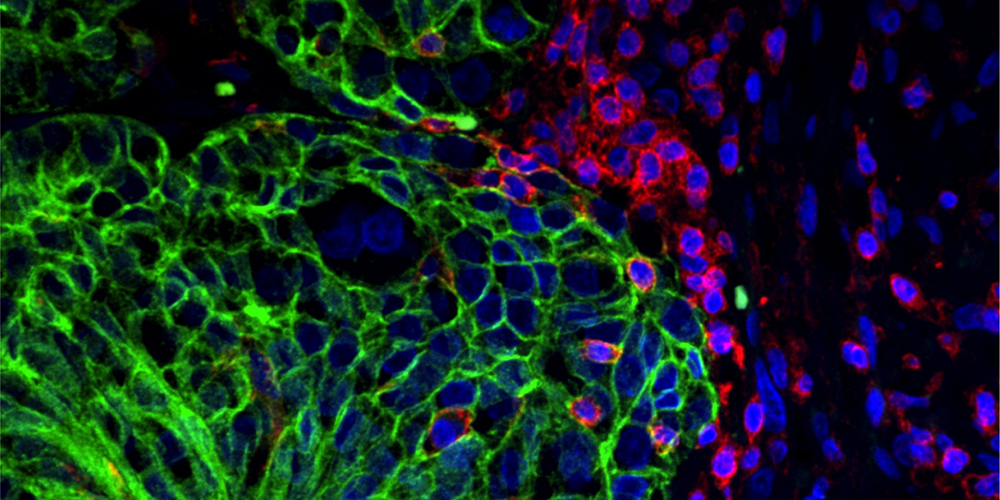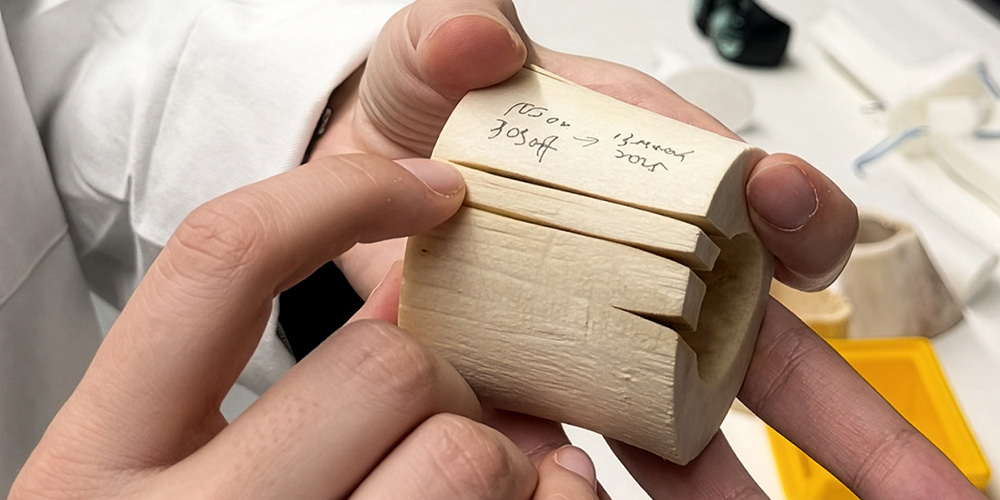A coat of fat and sugar helps cancer cells to spread
Changes to tumor cells during metastasis depend on certain molecules on the cell surface. Here, the importance of “glycolipids” in the spread of ovarian cancer has been deciphered by a Basel-led international team. These findings could pave the way for new treatment methods.
18 August 2022
Ovarian cancer is one of the most lethal cancers among women. The main reason is that this form of cancer is not detected in most patients until it is well advanced and has already spread to the abdomen. Unfortunately, the chance of recovery is relatively low at this stage, even with chemotherapy.
During metastasis, tumor cells need to adapt to new environments and transition between different cell stages. This ability is known in professional circles as “cell plasticity”.
Cell surface molecules make transition possible
Earlier studies have shown that a certain type of molecule plays a key role here: glycolipids. These are molecules that consist of a sugar and a lipid element. They can be found on any cell surface and are involved in an extremely wide range of different cellular communication processes. Glycolipids “could possibly have an active role on the cell plasticity of tumor cells”, says Dr. Francis Jacob, Project Leader at the Department of Biomedicine at the University of Basel and the University Hospital Basel.
This is the hypothesis being investigated by Francis Jacob and Prof. Dr. Viola Heinzelmann-Schwarz in a project supported by the Wilhelm Sander Foundation. Researchers from the Griffith University in Australia and the Medizinische Hochschule Hannover (Hannover Medical School) are also taking part in the project. In the specialist journal “Cell Reports”, the researchers have reported that the extent to which tumor cells are able to make the transition that is required for metastasis is limited if they are no longer able to produce glycolipids. They also found that there is a correlation between glycolipids, cell plasticity and calcium.
The sugar code
The element that connects proteins and lipids to glycans, i.e. sugar chains, changes its function and is likely to constitute a unique code that is comparable to DNA, Francis Jacob explains. “This code is so complex that there is an ever-growing field of researchers all over the world currently working on its encryption”. Furthermore, it is conceivable that glycolipids also play a role in the metastasis of other types of cancer, such as breast cancer.
The researchers are now aiming to consolidate the findings through the analysis of additional tumor samples in order to get an even better understanding of the function of glycolipids at individual cell level and in the molecular tumor microenvironment. The knowledge relating to the role of glycolipids could inspire new treatment methods designed to suppress tumor spread and therefore improve the chances of recovery.
As part of their research, the scientists in Heinzelmann-Schwarz and Jacob’s team have spent the past few years setting up an international tissue bank with tissue from over 1500 patients with gynecological tumor diseases. The team is also part of the “Tumor Profiler” project, a network of research groups set up with the aim of describing the molecular properties of tumors in minute detail.
Original publication
Cumin et al.
Glycosphingolipids are mediators of cancer plasticity through independent signalling pathways.
Cell Reports, doi: 10.1016/j.celrep.2022.111181



